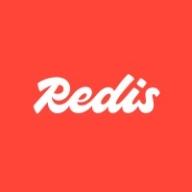

MongoDB Enterprise Advanced and Redis compete in the database technology category. MongoDB has the upper hand in managing diverse data types and scalability features, while Redis excels with unmatched speed for in-memory operations.
Features: MongoDB offers dynamic schema design, replication, and geographical data queries, ideal for handling unstructured data and diverse applications. Redis boasts simplicity and speed due to its in-memory storage, making it optimal for caching and real-time processing, with efficient handling of key-value pairs.
Room for Improvement: MongoDB could improve in pricing competitiveness, integrating better with other systems, and enhancing support. Redis may benefit from more detailed documentation, advanced GUI support, and improved clustering tools.
Ease of Deployment and Customer Service: MongoDB supports on-premises, public, and hybrid cloud deployments with varying support levels. Redis is mainly cloud-based, offering ease of scaling but facing challenges with open-source technical support.
Pricing and ROI: Both MongoDB and Redis are open-source with enterprise options available. MongoDB's pricing can be high for smaller businesses, yet it offers performance gains in extensive applications. Redis is more cost-effective for in-memory caching but may incur costs with increased data usage. Calculating ROI is complex due to varied application use and business integration levels.
Actually, with MongoDB, it's difficult to calculate the return on investment; it's too expensive for our use.
I would say we see value in money and return on investment with MongoDB Enterprise Advanced.
We have received fairly good support whenever we reached out to the technical teams; they were prompt.
CosmoDB is better for auto-scale.
Overall, on a scale of one to ten, I would rate MongoDB an eight; it's mostly because we're still running a monolithic environment on old hardware, so there are some limitations with read-write access.
MongoDB is highly scalable.
Data migration and changes to application-side configurations are challenging due to the lack of automatic migration tools in a non-clustered legacy system.
It's pretty much stable; we have not faced any major challenges or difficulties with MongoDB Enterprise Advanced.
Redis is fairly stable.
We have not contracted the security options in our contract because they're too expensive; thus, we implement just encrypted databases and not the security pack.
While solutions for other databases like SQL or PostgreSQL already exist, MongoDB requires additional integrations for developing AI solutions.
From the AWS standpoint, if robust integration and data warehouse integration specific tools are added in the advanced suite, that would definitely be helpful.
Data persistence and recovery face issues with compatibility across major versions, making upgrades possible but downgrades not active.
We have to pay approximately 2,000 euros per month for MongoDB.
We use the free version of MongoDB, so there are no licensing costs.
For a small company, the cost of MongoDB Enterprise Advanced is reasonable, but for heavy data usage, we see a little bit of cost pressure but it's acceptable.
Since we use an open-source version of Redis, we do not experience any setup costs or licensing expenses.
When the database receives numerous requests, it has to perform. Those threshold limits we come to know, and then automatically these memory enhancement advanced features are configured so that during high demand periods, memory automatically increases to cater to the incoming advanced requests and volume of requests.
It offers flexibility in schema adaptation, allowing us to change the schema and add new data points.
MongoDB has definitely helped us improve our network monitoring and reporting dashboard.
It functions similarly to a foundational building block in a larger system, enabling native integration and high functionality in core data processes.
| Product | Market Share (%) |
|---|---|
| MongoDB Enterprise Advanced | 13.9% |
| Redis | 9.1% |
| Other | 77.0% |
| Company Size | Count |
|---|---|
| Small Business | 35 |
| Midsize Enterprise | 13 |
| Large Enterprise | 38 |
| Company Size | Count |
|---|---|
| Small Business | 11 |
| Midsize Enterprise | 3 |
| Large Enterprise | 9 |
MongoDB Enterprise Advanced is a comprehensive platform renowned for its scalability, user-friendliness, and high performance, underpinned by its flexible document-based storage and open-source model. JSON compatibility, clustering, and security elevate its standing among professionals.
The platform facilitates efficient data management through developer-friendly tools and a strong aggregation framework. MongoDB’s no-schema requirement, supported by community expertise, underlines its adaptability. While its sharding capabilities and affordably support large data volumes, there are aspects such as security enhancement and enterprise tool integration that need attention. Indexing and query optimization pose challenges, alongside high costs. Improvements in analytics and UI could advance its infrastructure further.
What are the key features of MongoDB Enterprise Advanced?Industries leverage MongoDB Enterprise Advanced for significant roles in data storage within IoT platforms, healthcare apps, public service monitoring, and big data analytics. Companies in logistics and telecommunications find it instrumental for business process management and video content management, benefiting from its seamless integration and unstructured data support.
Redis offers high-speed, in-memory storage, renowned for real-time performance. It supports quick data retrieval and is used commonly in applications like analytics and gaming.
Renowned for real-time performance, Redis delivers high-speed in-memory storage, making it a favorite for applications needing quick data retrieval. Its diverse data structures and caching capabilities support a broad array of use cases, including analytics and gaming. Redis ensures robust scalability with master-slave replication and clustering, while its publish/subscribe pattern renders it reliable for event-driven applications. The solution integrates smoothly with existing systems, minimizing performance tuning needs. Although documentation on scalability and security could be improved, Redis remains cost-effective and stable, commonly utilized in cloud environments. Enhancing integration with cloud services like AWS and Google Cloud and refining GUI may improve usability.
What are the key features of Redis?Redis finds application across industries for tasks like caching to improve application performance and speed, minimizing database load. It enables real-time processing for session storage, push notifications, and analytics. As a messaging platform, Redis handles high traffic and supports replication and clustering for cross-platform scalability.
We monitor all NoSQL Databases reviews to prevent fraudulent reviews and keep review quality high. We do not post reviews by company employees or direct competitors. We validate each review for authenticity via cross-reference with LinkedIn, and personal follow-up with the reviewer when necessary.